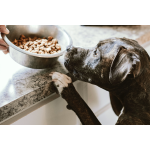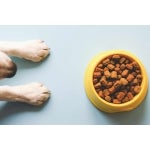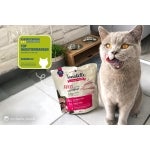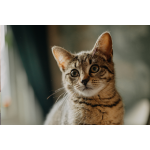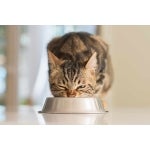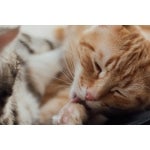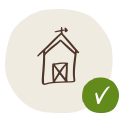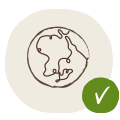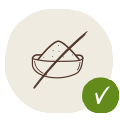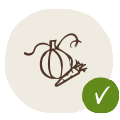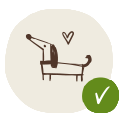
Purine - what is it actually?
Put simply, purines are important building blocks of DNA and are present in every single cell in the body. However, purines are also absorbed and metabolized in the body through food. There are various reasons why a low-purine diet may be important. These include, for example, a specific genetic defect that can occur in Dalmatians or an infection with Leishmania that is being treated.
Low purine dog food & leishmaniasis:
Allopurinol is one of the drugs generally used in the treatment of leishmaniasis. This not only intervenes in the metabolism of the leishmania and helps to curb the multiplication of the pathogens, but also has an effect on the dog's purine metabolism. By inhibiting the enzyme xanthine oxidase, which normally breaks down purine to uric acid, the metabolic product xanthine is formed. This is excreted via the kidneys and bladder, where it can accumulate and promote the formation of xanthine stones. In order to keep this metabolic product as low as possible, it is important to feed a low-purine diet during treatment with allopurinol.
How do I feed my dog a low purine diet?
Pure muscle meat has a lower purine content - dairy products and especially eggs contain very small amounts of purine. In addition to a low-purine diet, a moderate supply of high-quality protein and additional enrichment of the feed with essential fatty acids and zinc may be useful, depending on the severity or stage of the disease. Thanks to the moderate use of purine-rich ingredients, our bosch HPC Special Light has a low purine content of less than 100 mg per kg of feed and a low total protein content.
It is best to discuss with your veterinarian which food is suitable for your pet.
What should be avoided on a low-purine diet?
For this reason, you should avoid food, feed and snacks that contain a lot of purine. Foods and feedstuffs rich in purine - such as offal and fish - are particularly high in purine.
Du hast weitere Fragen zur Ernährung Deines Hundes?
Feel free to contact our nutrition experts. They will be happy to help you by e-mail and by telephone via our free hotline.
Phone: +49 (0) 800 333 8 222 (free of charge)
E-Mail: expertenteam@bosch-tiernahrung.de
Monday - Thursday: 7.30 - 12 o'clock & 13 - 16 o'clock
Friday: 7.30 - 12 o'clock & 13 - 15 o'clock

